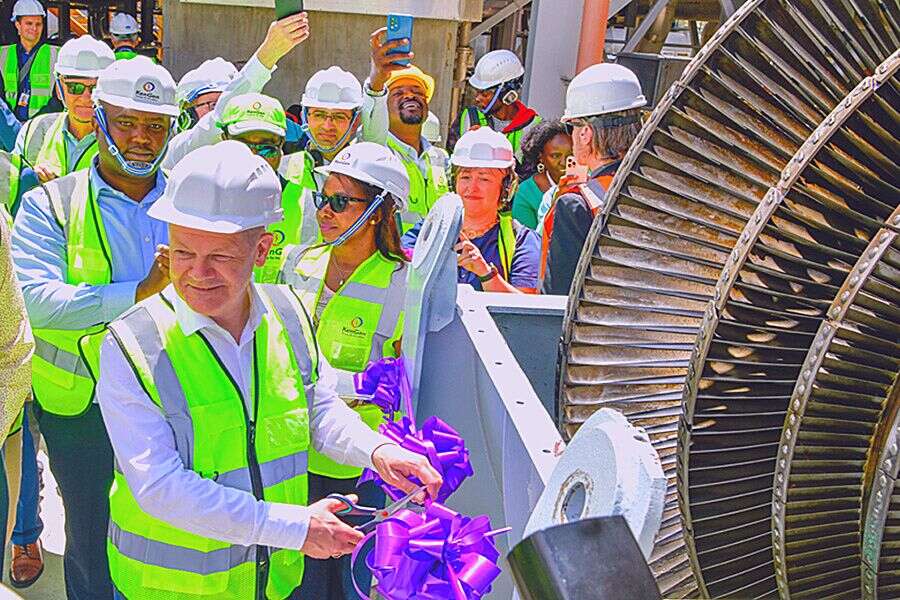Germany is set to strengthen its partnership with Kenya in the field of geothermal energy, as part of its broader commitment to supporting renewable energy across Africa. During a recent visit to Kenya, German Chancellor Olaf Scholz unveiled plans to offer both financial and technical support for expanding the Olkaria geothermal site, operated by the Kenya Electricity Generating Company (KenGen). The project aims to boost the capacity of the Olkaria power plant from 300 megawatts (MW) to 340 MW, adding 40 MW of geothermal energy to the national grid.
The Olkaria expansion includes upgrading current infrastructure, such as replacing turbine rotors with new, more efficient designs. The upgrade is expected to enhance Kenya’s renewable energy capacity and help reduce rising electricity costs for consumers. Germany’s involvement highlights its dedication to supporting Kenya’s target of achieving 100% renewable energy by 2030. This target shows Kenya’s strong leadership in climate action and sustainable development.
Chancellor Scholz emphasized the potential of geothermal energy in both Kenya and Germany, pointing out that geothermal resources can be used for both heating and electricity generation in more areas than previously thought. He also noted Germany’s interest in growing its own geothermal capacity and sharing knowledge with Kenya. The visit included talks about developing a green hydrogen economy in Kenya, using geothermal energy for fertilizer production, which could also improve food security.
NTPC Green Energy IPO Raises ₹10,000 Crore for Renewable Energy Growth
Kenya is recognized globally for its geothermal energy leadership, ranking seventh in the world for geothermal exploration and production. The country’s location along the East African Rift gives it a major advantage in geothermal potential. KenGen operates several geothermal plants in the Olkaria region and has drilled over 320 wells to harness this renewable energy source. Currently, over 90% of KenGen’s electricity comes from renewable sources, mainly hydroelectricity and geothermal power.
This partnership between Germany and Kenya is part of a larger trend of European countries investing in Africa’s renewable energy sector. Germany has pledged substantial financial support for green initiatives across Africa, with a focus on sustainable development and climate resilience. Past projects include funding for the Silali geothermal project in Baringo County, which has successfully developed multiple wells.
As part of this partnership, both countries are exploring ways to promote knowledge transfer and vocational training to develop skilled labor for the renewable energy sector. Workforce development is crucial, as it ensures that local communities can actively participate in and benefit from these green projects.
Kenya Negotiates Sh455 Million Carbon Credits Deal to Boost Green Economy
While the partnership has significant potential, there are challenges that need to be addressed. There are concerns about ensuring that local communities are properly consulted and involved in decision-making processes regarding land use for geothermal projects. It is important for both governments to prioritize community engagement and make sure that any agreements made are fair and beneficial for all involved.
Germany’s support for Kenya’s geothermal energy expansion is a major step in boosting renewable energy capacity in Africa. By bringing together expertise and resources, Germany and Kenya aim to not only increase Kenya’s energy output but also set a leading example for other nations focused on sustainable development through renewable energy. As both countries work towards a greener future, this partnership could lead to transformative changes in energy production and consumption across the continent.

















